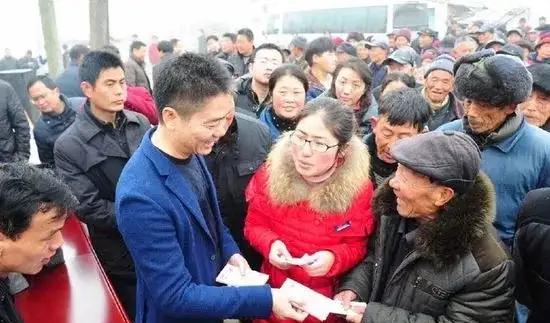JD CEO's Gratitude: A Reflection on Wealth and Social Responsibility
Liu Qiangdong, founder of JD.com, pledges CNY 100,000 to each of his former elementary school teachers and CNY 10,000 to elderly villagers in his hometown, sparking discussions about corporate responsibility and gratitude.

In a heartfelt letter to his hometown during Chinese New Year, Liu Qiangdong, founder of China’s e-commerce giant JD.com, announced a significant gesture of gratitude that has captured widespread attention. His pledge includes giving CNY 100,000 to each of his elementary school teachers from Light Village, as well as CNY 10,000 to every villager aged 60 and above.
This act of generosity stems from Liu’s humble beginnings. In 1992, when he was a student in rural Jiangsu Province, China, the entire village pooled together their resources to support his education. The collective contribution amounted to 500 yuan and 76 eggs - a significant sacrifice for the impoverished community at that time.
Three decades later, Liu’s success story has become legendary in Chinese business circles. Beyond mere financial achievements, his consistent commitment to giving back to his roots sets him apart from many other successful entrepreneurs. His philanthropy extends beyond monetary gifts, encompassing infrastructure development, educational initiatives, and elderly care facilities in his hometown.
The impact of Liu’s actions ripples through multiple dimensions of rural development. He has invested 58 million yuan in building a comprehensive elderly care center, 40 million yuan to establish an international school branch, and 4.5 billion yuan in creating the JD Commercial City Information Technology Industrial Park. These investments not only improve local living conditions but also create substantial employment opportunities.
What distinguishes Liu’s philanthropy is its personal touch and deep connection to his origins. His gratitude toward his elementary school teachers reflects a profound understanding of education’s transformative power, especially in rural China where dedicated educators often work with limited resources but unlimited dedication.
The timing of this announcement, amid various corporate challenges, demonstrates Liu’s unwavering commitment to his roots. His actions serve as a powerful reminder that successful entrepreneurship carries social responsibilities that extend beyond profit margins and market shares.
This gesture resonates particularly strongly in Chinese society, where the concept of “remembering one’s roots” holds special cultural significance. It exemplifies how business success can be channeled into meaningful social impact, especially in bridging the urban-rural development gap that continues to challenge modern China.